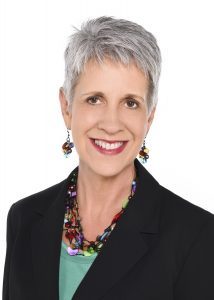Mike Michalowicz's Blog, page 52
July 26, 2017
When the Entrepreneurial Drive Drives You Into the Ground
When I started my first company, Olmec, back in ‘96, I spent more time sleeping on my office couch than my bed. It was all work all day, baby, and I thought I was doing great. In my mind, I was killing the game because I was outlasting the 9-to-5ers and loving every second of it. But in reality, I was driving myself into the ground and becoming less productive.
A victim of the One More Thing syndrome, there was always just one more thing I needed to complete before I could take a breather. One step closer to a breakthrough in income or advancement of the business. But as I finished that one last thing, my brain was already running 100mph to the next task that just had to be done before I could call it quits.
This pattern of One More Thing is how entrepreneurs can live their entire lives. To some degree, it’s an addiction. Borderline obsessive. Maybe not as life threatening as drugs, but one that slowly chips away at your family and personal life. This manic state of “gotta work more, gotta work more” is what makes us blind to what is going on in the outside world. It’s then that we lose our balance.
Working through the night, skipping healthy meals, all because you get into a zone that you don’t want to break. Everything else in your life can so quickly take the backseat to your passion. That’s when you need to stop yourself and ask: who can force the balance into my life? Can I do it? Do I need a partner, a friend, a business partner, a roommate to help me? Somebody to step in and tell you it’s time to go for a walk, have a family dinner, take a nap. These breaks will help you recharge and come back even more productive and energized than before.
The post When the Entrepreneurial Drive Drives You Into the Ground appeared first on Mike Michalowicz.
July 19, 2017
Is Honesty the Secret Ingredient?
Honesty is a vital component of profitability. This is a concept I’ve been toying around with since my conversation with Larry Winget. According to Larry, dishonesty and a lack of core values is what is wrong with business nowadays. Not only must we demand honesty from businesses whose services we consume, but we must demonstrate trustworthiness in order to retain clients.
When big businesses regularly set poor examples for business ethics – skirting around labor laws, releasing misleading ad campaigns, evading EPA regulations – it’s tempting to sink to the lowest common denominator. If that’s how multi-billion dollar companies do it, isn’t that how I should do it too? Not necessarily.
Being honest with your clients will directly impact your profitability. Customers recognize quality service and by always following through on promises, you will gain their trust. Better yet, when you know you won’t follow through on a promise, communicate honestly and early. Show your respect for your customers and you could gain their lifetime loyalty.
Over time, your reputation for honesty and superior customer service will spread and earn you more clients. On the flip side, a reputation for manipulation and unreliability could be the death of your business.
When faced with your next difficult decision, to tell a small white lie or to bend the truth, think about what will best drive your profitability.
The post Is Honesty the Secret Ingredient? appeared first on Mike Michalowicz.
July 12, 2017
The Road to Profitability: Don’t Miss This Deduction with Connie Jacox
Mileage tracking may seem like a waste of time to you because you can’t claim the commute to the office; but let’s take a moment to think about this. How often do you drive to meet a client for lunch, or run to Costco for supplies, and let’s not forget driving to that training session across the state? The current IRS mileage rate for 2017 business mileage is 53.5 cents per mile. If you drive just a 1000 miles for business, you are leaving $535.00 on the table if you don’t track this mileage.
Yes, it can be a pain to keep a log of all your mileage, but BLBK Solutions has an awesome tool to make it as easy as pressing a button on your phone when you start your trip.
Thanks to the BLBK SOLUTIONS LLC App, you can now get all the information you need permanently recorded on your Smartphone. Just set the Mileage Tracker to ‘Start Trip’ and thanks to the wonders of GPS tracking, your precise journey and the exact mileage covered will be recorded for you. When you get to your destination, click ‘End Trip’ and all the details will be saved.
You can view a list of all the trips you have made including dates, times and miles covered and you can even email the details to your accountant, head office, payroll section – whoever needs the information.
It’s a convenient and profitable feature of your BLBK SOLUTIONS LLC App. If you haven’t used it yet, give it a try. We think you’ll be impressed.
Don’t have the app yet? It’s free! You can download it at iTunes® or the Google Play™ store. Give it a try and let us know what you think.
Article Written By Connie Jacox
[image error]
Connie Jacox is the Founder CEO of BLBK Solutions LLC a certified Profit First firm that specializes in the dental industry. She can be reached at connie@blbksolutions.com
The post The Road to Profitability: Don’t Miss This Deduction with Connie Jacox appeared first on Mike Michalowicz.
June 28, 2017
A Lesson in Recurring Revenue
So there is a guy who owns a candy store. One day, while some of his customers are browsing around, a little boy walks inside. The store owner turns to one of his customers and whispers in his ear, “watch how dumb this kid is.” The store owner calls the boy over and in his hand places a dollar and in the other, fifty cents. The man asks the boy, “which one do you want?” The kid quickly grabs the two quarters and runs out of the store. The store owner looks at the customer and says “see, I told you.” Later in the day, the customer walks outside and spots the boy buying ice cream. He approaches him and asks, “why did you take the two quarters and not the dollar?” The boy looks at the customer and responds “if I took the dollar, then the game would end.”
There is a significant lesson to be learned here in regards to recurring revenue. We must make our customers authentically feel that they are getting extraordinary value. In exchange, they will continue their participation.
I can try to sell you a one time, large-fee service or I can sell you something that is a recurring model but at a smaller fee. With a smaller fee, there will be continued engagement. The store owner will continue to play this game, thinking he is winning, because the entertainment only costs him 50 cents. We can do the same with our customers. Reduce your fee but make it recurring so that, in the long run, the revenue you generate will far surpass what you could have made in just one sale.
The post A Lesson in Recurring Revenue appeared first on Mike Michalowicz.
June 21, 2017
Going Bananas for a Well Selected Name
A powerful name does wonders.

Recently, I went to a Savannah Bananas baseball game in, you guessed it, Savannah, Georgia. The intensity of the fanship was nothing short of remarkable. As I watched the fans pour into yet another sold out game, I was taken aback by their loyalty and excitement for the brand. Yes, everyone was wearing the T-shirts and the team colors. But to see people with Savannah Bananas tattoos and sculpting their facial hair into “banana beards” pointed to something bigger happening. Now, I’m not going to downplay the significance of how the event is run and all the efforts of the team, but this phenomenon was no question sparked by a powerful name.

After the game, I met with the owner, Jesse Cole, and talked about the feverish turnout. The team was only created last season and there were over 4,000 attendees at every game. This season is already sold out. And the team makes money too. In fact, it’s the only profitable team in the league by a long shot. All other teams have always lost money.

The Savannah Bananas may be profitable and boast die hard fans now, but when the team was first named, there was a public outcry. Many people thought it was ridiculous, a slam on baseball, and that no one would ever show. But the reality is, in this league, it’s the most popular team of all time.

And what drove its success home was merchandise sales. The day the name was picked, the community in Savannah deemed it outrageous, but merchandise sales exploded. Thousands of orders came in from all over the country and ESPN picked up on the story. Four months after the announcement was opening day. It was a sold out game and has been ever since.

Names matter. Have the courage to be different. Have the courage to pick a name that speaks to what your business is all about. You may also have a sell out on your hands.

The post appeared first on Mike Michalowicz.
June 7, 2017
Trucking Challenges by Jillian Verdun
If you’ve ever thought about starting your own trucking company, you’ve probably done enough homework to understand that it takes a whole lot more to be successful than just knowing how to drive a truck. Dedication, hard work, and commitment are the crux of the business and so is understanding the behind-the-scenes challenges that go along with it.
Here is what some of the experts are saying you need to be aware of if you’re thinking about going into the trucking industry for yourself.
Noel Perry ~ Truck and Transportation Expert of FTR Transportation Intelligence cautions you to:
Learn how to operate equipment efficiently
Understand what to load and what to leave
Have enough confidence in your own abilities in the market to be able to say “no” when necessary
Know the Fuel Charge Formula
Ellen Voie ~ Founder of the Women in Trucking Association cites some challenges as:
Adjusting from working for a company to becoming the owner/operator (from truck driver to business owner)
Remembering to budget for small purchases and planning for future expenses (maintenance fund, emergency fund, etc.)
Tracking where money is coming from and where it’s going. (Solution: use an expense tracker such as QuickBooks)
Fuel volatility and fuel surcharges
Using credit cards to help fund the business
Eating out while still maintaining a healthy lifestyle
Advances on pay
Barry Conlan ~ Co-Founder and CEO of Overhaul, has experienced the challenges of:
Shortages of drivers to meet demand
Electronic Logging Devices (ELD) appearing to be a burden on drivers
As the owner/operator, understanding and paying close attention to back office tasks and technology and using it to your advantage
Understanding the industry in order to make better business decisions
Article Written By Jillian Verdun

Jillian Verdun understands the stress that money and numbers can cause her clients. That’s why she’s so passionate about making her clients feel comfortable and confident in learning and implementing their money management strategies. Her personal touch, charisma, strong work ethic, and attention to detail – coupled with her extensive education and experience in both the tax and financial realms, prove she is the ideal choice for all of your numbers needs.
The post Trucking Challenges by Jillian Verdun appeared first on Mike Michalowicz.
Innovation is an Anagram for Frugality
If you rearrange the letters of the word frugality, it spells innovation. Now, of course, at face value, it doesn’t. But if you move the “i,” twist the “f” into two “n’s,” bend the “y” into an “o,” and so on and so forth, it does. It’s when you lack resources that you become your most inventive and innovative, as you’re forced to find creative solutions to your problems.
Learn about how ballerina turned fitness guru, Brynn Putnam, did exactly that.
The post Innovation is an Anagram for Frugality appeared first on Mike Michalowicz.
May 23, 2017
Engaging & Captivating Millennials in Ministries by Wendy Knutson
“In 2016, 78% of contributions were given by donors 50 years or older. ”
We learned this staggering statistic when speaking with a Texas church whose attendance each Sunday is about 1,200. Seventy-eight percent! In speaking with other ministries across the state, we have found the majority of ministries realize their donor population is aging. Most ministries tell us the average age of their donor is about 60 and they connect well with Baby Boomers and somewhat well with Gen X’ers.
Ministries are becoming aware that connecting with Millennials (people born in 1982 or later) is different from engaging with previous generations. However, they aren’t sure what is needed to engage with the younger population. We’ve taken on the task to interview various ministries and want to share the first of 5 tips to successfully engage with younger donors.
Tip #1: Create a hands-on experience.
Contrary to popular belief, Millennials have incredibly generous hearts. They are touched by events and moments. Go Fund Me campaigns are wildly popular on social media, and there is no shortage of good causes who need financing. “Millennials give to causes that tug at their heartstrings. They want to give to something where they can know an experience”, said Mark Yoakum, of the Southern Baptists of Texas Convention.
For a Millennial to really engage with a ministry, there seems to be a need to first connect through a hands-on experience. In an age of virtual connections and social media, they want a physical, “real” experience to tie them to a ministry.
OurCalling, a ministry to the homeless in downtown Dallas, recruits volunteers to help feed, clothe, and create conversations with the homeless. This experience helps captivate the hearts of the Millennials and their digital bank accounts. “When millennials volunteer with us and have personal experiences with our homeless friends, they are more likely to consider giving to our ministry,” said Cali McCormac, Volunteer and Events Coordinator (a Millennial herself.)
Hope for the Hungry is a ministry that engages Americans on missions trips. “When we take a younger person on a trip to a third-world country, we can capture their attention and gain a champion for the cause of Christ. This isn’t just a financial issue for us. We want to give them an experience to capture their heart,” Founder Dan Kirkley told us.
Tip #1 Take Away: Millennials want to give their time and their physical presence before financially committing to a ministry. Therefore, ministries wanting to engage younger donors must create hands-on experiences where people can connect and feel their gift of time made a difference. Think this just wouldn’t fit for your ministry? Get creative and think outside the box to find ways to physically engage.
Want to receive the entire 5 part mini-series on how to connect and engage with Millennials? Visit knutsoncpa.com/millennials
Written by Wendy Knutson, CPA

Wendy Knutson, CPA is the owner of Knutson CPA in Southlake, TX where a team of professionals serves a variety of businesses and ministries. As Certified Profit First Professional, the firm has a vision of enriching the lives of business owners by helping them find the missing piece: PROFITS. We take a similar approach called VISION FIRST with nonprofits, helping them develop healthy habits to accomplish their vision.
The post Engaging & Captivating Millennials in Ministries by Wendy Knutson appeared first on Mike Michalowicz.
May 22, 2017
9 Tips to Increase Profit NOW from Leading E-Commerce and Online Retail Experts by Tanja Woods

What I love about the E-Commerce industry is that it provides opportunity for everyone. It’s a great business leveler.
The continual innovation of technology and product can provide infinite scalability for an Online Retailer. Plus there’s an industry wide openness and willingness to share what they have already learnt with those new to selling online.
Personally, Entrepreneurs fascinate me…. I love being around their enthusiasm, optimism and tenacity. I love hearing the stories behind their business.
It’s never been easier and there’s a lot of information available to start an Online Business. The learning curve for a new business owner is huge. You have to become the resident expert of all things business and you need to work to sustain profitable growth of your E-Commerce business.
Unfortunately, every week we read about a start-up, with a fantastic idea, who despite having amazing initial take-up, makes the heart wrenching decision to shuts it’s doors. So let’s talk about growth and longevity of selling online. Specifically, let’s talk Profit and what can be done to maximize it in the short term.
To do this, I sought out E-Commerce industry leaders to share their top tips on selling online – Profitably.
So what can you implement quickly to increase profit
Tip 1: Invest in Conferences to Stay Current and Make Valuable Connections.
Phil Leahy, CEO Retail Global is passionate about making connections and has founded 2 major annual conferences for digital retailers. The Retail Global conferences were launched to cater for new businesses who will potentially become the large E-Commerce businesses of the future. Targeting entrepreneurs who are at the “Start-up to Scale-up” sector.
The conference content is information rich, without the pitch. Offering 7 streams designed to cater for businesses at every level. If you are considering selling online, this is a great event to get you started.
Phil is adamant that the most profitable information and connections are made from the people you meet over a drink. He refers to an Online Retailer who recently sold his $20 million business, telling Phil that he wouldn’t have been able to scale and grow profitably, if he hadn’t invested in attending conferences and making connections.
Phil says “In the E-Commerce industry, innovation is key. Profitability relies on keeping staff low and sales high, so being up to date with the tools available to cut workload will help online businesses be competitive. These days Online Retail businesses need to be multi channeled, so stay up to date with selling opportunities provided by eBay and Amazon, as well as the other sales channels like Marketplacer, CatchOfTheDay and Facebook.”
Phil Leahy – CEO Retail Global AU and Retail Global US
Tip 2: Build your Business with Authenticity.
Irene Falcone has had mega success following her passion for health and wellness and living a toxin free life. Her business grew out of her personal journey, which she turned into a blog, which then evolved into a hugely successful online retail business Nourished Life, now set to turn over $20 million in it’s 5th year.
Her tip is to “Keep it Real”. Everything she does is with authenticity, from how she communicates to her market, to how she manages her staff. Her other tip, regularly portion money away to cover costs and taxes AND make sure you don’t spend more than you make. 5 Stars Irene!
Irene Falcone – CEO Nourished Life
Tip 3: Choose Proven Products – Learn the Process of Analysing Data.
Neil Waterhouse, founder and host of multiple Aussie eBay and E-Commerce Sellers Meetup Groups, advises start-ups to focus on proven products with a track record. He teaches methodology on how to pull data and look at the numbers. “Everything should be about the numbers, taking out the guesswork”.
A common mistake for new eBay sellers is focusing on small cheap items with small margins. Others think they need a large cash investment to import inventory, however you don’t need that, you can run a cash flow positive business using other strategies, like drop shipping. The other common mistake is that they use a best guess marketing strategy. So it’s important for them to choose a strategy based on data – there is no need for guess work.
Neil suggests you look at products with a minimum 90 day history, analyzing 2 Key product data areas when choosing E-Commerce products to sell: Profit (sell price – cost price – fees) and Velocity – how many times does that item sell per month.
He says, “The difference between a small eBay business and large business is how many of those items you have, that regularly turn over. Neil’s Blog is a rich source of industry specific information, full of ‘how to’ blogs and videos.
Neil Waterhouse – eBay Multi Million Dollar Seller | Author | Speaker and eBay Coach
Tip 4: Get Real About Expenditure and What your Product Actually Costs.
Row Murray recommends asking yourself, what costs are really going into getting my product to my customer? “Online Retailers have a dream vision of how they want their product to look when arriving on the customer’s doorstep, however often the fancy packaging and presentation can double the actual cost of the product, blowing away any margin”.
Another common mistake is that they fail to factor in their time. As a business owner, you need to be really honest with yourself. She told me of a well-known clothes designer, who did this exercise only to discover he was working for $2.80 an hour. Why would you do that? Row Murray – Founder, and Digital and UX Director of Kenobi and Board Member on Vic ICT4.Women
Tip 5: Always Look to Automation Tools to Improve Productivity and Profitability.
Nathan Huppatz, an online retail trailblazer, has learnt a lot since he began back in 1999. He recommend, “small online retailers need to find ways to be more efficient to optimize their time. Time is often the thing that limits their growth. They spend too much time doing operational stuff and not enough growing their business. Look at software to automate the business, software to manage inventory etc. All those tools to really make their business hum along”. Throughout his online career, he has always looked to technology to optimize and problem solve.
He also adds that medium to larger businesses, should look at increasing their average sales $ amount. Look at ways to offer the buyer more perceived value to get a higher order value. Over the course of a year this can make a massive difference to overall margin. The process of buying from you needs to be easy and streamlined.
Nathan Huppatz – Co-founder, Costumes.com.au and ReadyToShip
Tip 6: Make Sure you and your Product can be Found Easily Online.
Tim’s first tip – use well researched Product Key Wording. “Having good product data sitting behind the product is like the foundation of a house. You need to understand your customer and ask yourself what will a buyer call this product?” Cosmetics are a classic example of missed opportunity due to improper Product Key Wording.
He also recommends supporting your sales channel(s) with a web site, even if it doesn’t have its own sales funnel, it will increase credibility and perceived value. Tim believes customers are increasingly placing a value on the buying experience, which if it’s good creates trust. Trust equals repeat sales, but you must ensure your Multi-channels have consistency of price and product.
Tim advocates getting an independent critique of your site. Ask someone you trust to give an honest opinion. Have them look at your site with fresh eyes, focusing on your site’s credibility and missed sales opportunities of related products.
Tim Davies – Principal Consultant at Zellis and President of PeSA (Professional eBay Sellers Alliance)
Tip 7: Consider Selling Internationally.
Edward Wiley of OFX – a global money transfer company, believes that if you’ve established your business in Australia, it’s not a huge step to enter the international market, which opens up a whole new customer base of 100’s of millions. Of course, look at saving on foreign transaction fees by using money transfer services designed specifically for Online Sellers.
He also adds “The trick to optimizing online sales is to grow a brand around your central product. Optimize affiliate sales if you can’t afford to import other products yourself.”
Edward Wiley – Alliance Manager | OFX
Tip 8: Treat your Business as an Investment.
Neil Asher’s tip is to start thinking of the business’ expense lines, such as people, marketing, sales and branding as business assets. Look at reinvesting in these areas to get a return. His suggestion, start with marketing, specifically focused toward your ideal customer.
He also points out that it’s essential that your shopping cart is an easy experience for your customer. His motto – test, test and test your shopping cart. Similarly make sure your shipping policy is straightforward and easy to understand. Having too many options will confuse your customer.
Neil Asher – Aussie Online Entrepreneurs and CEO of Roar Local
Tip 9: Become the Boss of your Cash Flow.
My best advice, seek help early for the money management side of your business to form good money habits which will carry you and your business through start-up to scale-up and make sure you pay yourself.
Entrepreneurs are people with great ideas, can spot an opportunity a mile off, they are big on action and run their business on energy and enthusiasm. Let’s be realistic, sitting down to do the accounts, read a Profit and Loss, is a drain on that energy. Very rarely is the financial side of operating an E-Commerce businesses the most favorite task for online entrepreneurs. In fact it’s the most procrastinated task of them all. Yet “Cash Flow issues” are nearly always the reason Online Retail businesses struggle.
“Our problem wasn’t convincing business owners that it is important to manage the financial side – it was finding a way they can manage the cash, which is in tune with human behavior and their unique personality traits”.
Tanja Woods – Owner of Thinking Cloud
Article written by Tanja Woods

Tanja Woods and her husband Alex, own Thinking Cloud . As Profit First Professionals, they are on a mission to support Online Entrepreneurs by providing Profit and Growth Expertise. They want business owners to experience positive outcomes, like a sense of control, gains in confidence and reduction of stress, which all come from proactive decisions. They implement and teach a proven strategy that ensures Online Entrepreneurs are actually paid by their own business. It’s a proven system for money management based on human behaviour, called Profit First. Contact them at hello@thinkingcloud.com.au
The post 9 Tips to Increase Profit NOW from Leading E-Commerce and Online Retail Experts by Tanja Woods appeared first on Mike Michalowicz.
9 Tips to Increase Profit NOW from Leading E-Commerce and Online Retail Experts

What I love about the E-Commerce industry is that it provides opportunity for everyone. It’s a great business leveler.
The continual innovation of technology and product can provide infinite scalability for an Online Retailer. Plus there’s an industry wide openness and willingness to share what they have already learnt with those new to selling online.
Personally, Entrepreneurs fascinate me…. I love being around their enthusiasm, optimism and tenacity. I love hearing the stories behind their business.
It’s never been easier and there’s a lot of information available to start an Online Business. The learning curve for a new business owner is huge. You have to become the resident expert of all things business and you need to work to sustain profitable growth of your E-Commerce business.
Unfortunately, every week we read about a start-up, with a fantastic idea, who despite having amazing initial take-up, makes the heart wrenching decision to shuts it’s doors. So let’s talk about growth and longevity of selling online. Specifically, let’s talk Profit and what can be done to maximize it in the short term.
To do this, I sought out E-Commerce industry leaders to share their top tips on selling online – Profitably.
So what can you implement quickly to increase profit
Tip 1: Invest in Conferences to Stay Current and Make Valuable Connections.
Phil Leahy, CEO Retail Global is passionate about making connections and has founded 2 major annual conferences for digital retailers. The Retail Global conferences were launched to cater for new businesses who will potentially become the large E-Commerce businesses of the future. Targeting entrepreneurs who are at the “Start-up to Scale-up” sector.
The conference content is information rich, without the pitch. Offering 7 streams designed to cater for businesses at every level. If you are considering selling online, this is a great event to get you started.
Phil is adamant that the most profitable information and connections are made from the people you meet over a drink. He refers to an Online Retailer who recently sold his $20 million business, telling Phil that he wouldn’t have been able to scale and grow profitably, if he hadn’t invested in attending conferences and making connections.
Phil says “In the E-Commerce industry, innovation is key. Profitability relies on keeping staff low and sales high, so being up to date with the tools available to cut workload will help online businesses be competitive. These days Online Retail businesses need to be multi channeled, so stay up to date with selling opportunities provided by eBay and Amazon, as well as the other sales channels like Marketplacer, CatchOfTheDay and Facebook.”
Phil Leahy – CEO Retail Global AU and Retail Global US
Tip 2: Build your Business with Authenticity.
Irene Falcone has had mega success following her passion for health and wellness and living a toxin free life. Her business grew out of her personal journey, which she turned into a blog, which then evolved into a hugely successful online retail business Nourished Life, now set to turn over $20 million in it’s 5th year.
Her tip is to “Keep it Real”. Everything she does is with authenticity, from how she communicates to her market, to how she manages her staff. Her other tip, regularly portion money away to cover costs and taxes AND make sure you don’t spend more than you make. 5 Stars Irene!
Irene Falcone – CEO Nourished Life
Tip 3: Choose Proven Products – Learn the Process of Analysing Data.
Neil Waterhouse, founder and host of multiple Aussie eBay and E-Commerce Sellers Meetup Groups, advises start-ups to focus on proven products with a track record. He teaches methodology on how to pull data and look at the numbers. “Everything should be about the numbers, taking out the guesswork”.
A common mistake for new eBay sellers is focusing on small cheap items with small margins. Others think they need a large cash investment to import inventory, however you don’t need that, you can run a cash flow positive business using other strategies, like drop shipping. The other common mistake is that they use a best guess marketing strategy. So it’s important for them to choose a strategy based on data – there is no need for guess work.
Neil suggests you look at products with a minimum 90 day history, analyzing 2 Key product data areas when choosing E-Commerce products to sell: Profit (sell price – cost price – fees) and Velocity – how many times does that item sell per month.
He says, “The difference between a small eBay business and large business is how many of those items you have, that regularly turn over. Neil’s Blog is a rich source of industry specific information, full of ‘how to’ blogs and videos.
Neil Waterhouse – eBay Multi Million Dollar Seller | Author | Speaker and eBay Coach
Tip 4: Get Real About Expenditure and What your Product Actually Costs.
Row Murray recommends asking yourself, what costs are really going into getting my product to my customer? “Online Retailers have a dream vision of how they want their product to look when arriving on the customer’s doorstep, however often the fancy packaging and presentation can double the actual cost of the product, blowing away any margin”.
Another common mistake is that they fail to factor in their time. As a business owner, you need to be really honest with yourself. She told me of a well-known clothes designer, who did this exercise only to discover he was working for $2.80 an hour. Why would you do that? Row Murray – Founder, and Digital and UX Director of Kenobi and Board Member on Vic ICT4.Women
Tip 5: Always Look to Automation Tools to Improve Productivity and Profitability.
Nathan Huppatz, an online retail trailblazer, has learnt a lot since he began back in 1999. He recommend, “small online retailers need to find ways to be more efficient to optimize their time. Time is often the thing that limits their growth. They spend too much time doing operational stuff and not enough growing their business. Look at software to automate the business, software to manage inventory etc. All those tools to really make their business hum along”. Throughout his online career, he has always looked to technology to optimize and problem solve.
He also adds that medium to larger businesses, should look at increasing their average sales $ amount. Look at ways to offer the buyer more perceived value to get a higher order value. Over the course of a year this can make a massive difference to overall margin. The process of buying from you needs to be easy and streamlined.
Nathan Huppatz – Co-founder, Costumes.com.au and ReadyToShip
Tip 6: Make Sure you and your Product can be Found Easily Online.
Tim’s first tip – use well researched Product Key Wording. “Having good product data sitting behind the product is like the foundation of a house. You need to understand your customer and ask yourself what will a buyer call this product?” Cosmetics are a classic example of missed opportunity due to improper Product Key Wording.
He also recommends supporting your sales channel(s) with a web site, even if it doesn’t have its own sales funnel, it will increase credibility and perceived value. Tim believes customers are increasingly placing a value on the buying experience, which if it’s good creates trust. Trust equals repeat sales, but you must ensure your Multi-channels have consistency of price and product.
Tim advocates getting an independent critique of your site. Ask someone you trust to give an honest opinion. Have them look at your site with fresh eyes, focusing on your site’s credibility and missed sales opportunities of related products.
Tim Davies – Principal Consultant at Zellis and President of PeSA (Professional eBay Sellers Alliance)
Tip 7: Consider Selling Internationally.
Edward Wiley of OFX – a global money transfer company, believes that if you’ve established your business in Australia, it’s not a huge step to enter the international market, which opens up a whole new customer base of 100’s of millions. Of course, look at saving on foreign transaction fees by using money transfer services designed specifically for Online Sellers.
He also adds “The trick to optimizing online sales is to grow a brand around your central product. Optimize affiliate sales if you can’t afford to import other products yourself.”
Edward Wiley – Alliance Manager | OFX
Tip 8: Treat your Business as an Investment.
Neil Asher’s tip is to start thinking of the business’ expense lines, such as people, marketing, sales and branding as business assets. Look at reinvesting in these areas to get a return. His suggestion, start with marketing, specifically focused toward your ideal customer.
He also points out that it’s essential that your shopping cart is an easy experience for your customer. His motto – test, test and test your shopping cart. Similarly make sure your shipping policy is straightforward and easy to understand. Having too many options will confuse your customer.
Neil Asher – Aussie Online Entrepreneurs and CEO of Roar Local
Tip 9: Become the Boss of your Cash Flow.
My best advice, seek help early for the money management side of your business to form good money habits which will carry you and your business through start-up to scale-up and make sure you pay yourself.
Entrepreneurs are people with great ideas, can spot an opportunity a mile off, they are big on action and run their business on energy and enthusiasm. Let’s be realistic, sitting down to do the accounts, read a Profit and Loss, is a drain on that energy. Very rarely is the financial side of operating an E-Commerce businesses the most favorite task for online entrepreneurs. In fact it’s the most procrastinated task of them all. Yet “Cash Flow issues” are nearly always the reason Online Retail businesses struggle.
“Our problem wasn’t convincing business owners that it is important to manage the financial side – it was finding a way they can manage the cash, which is in tune with human behavior and their unique personality traits”.
Tanja Woods – Owner of Thinking Cloud
Article written by Tanja Woods

Tanja Woods and her husband Alex, own Thinking Cloud . As Profit First Professionals, they are on a mission to support Online Entrepreneurs by providing Profit and Growth Expertise. They want business owners to experience positive outcomes, like a sense of control, gains in confidence and reduction of stress, which all come from proactive decisions. They implement and teach a proven strategy that ensures Online Entrepreneurs are actually paid by their own business. It’s a proven system for money management based on human behaviour, called Profit First. Contact them at hello@thinkingcloud.com.au
The post 9 Tips to Increase Profit NOW from Leading E-Commerce and Online Retail Experts appeared first on Mike Michalowicz.



